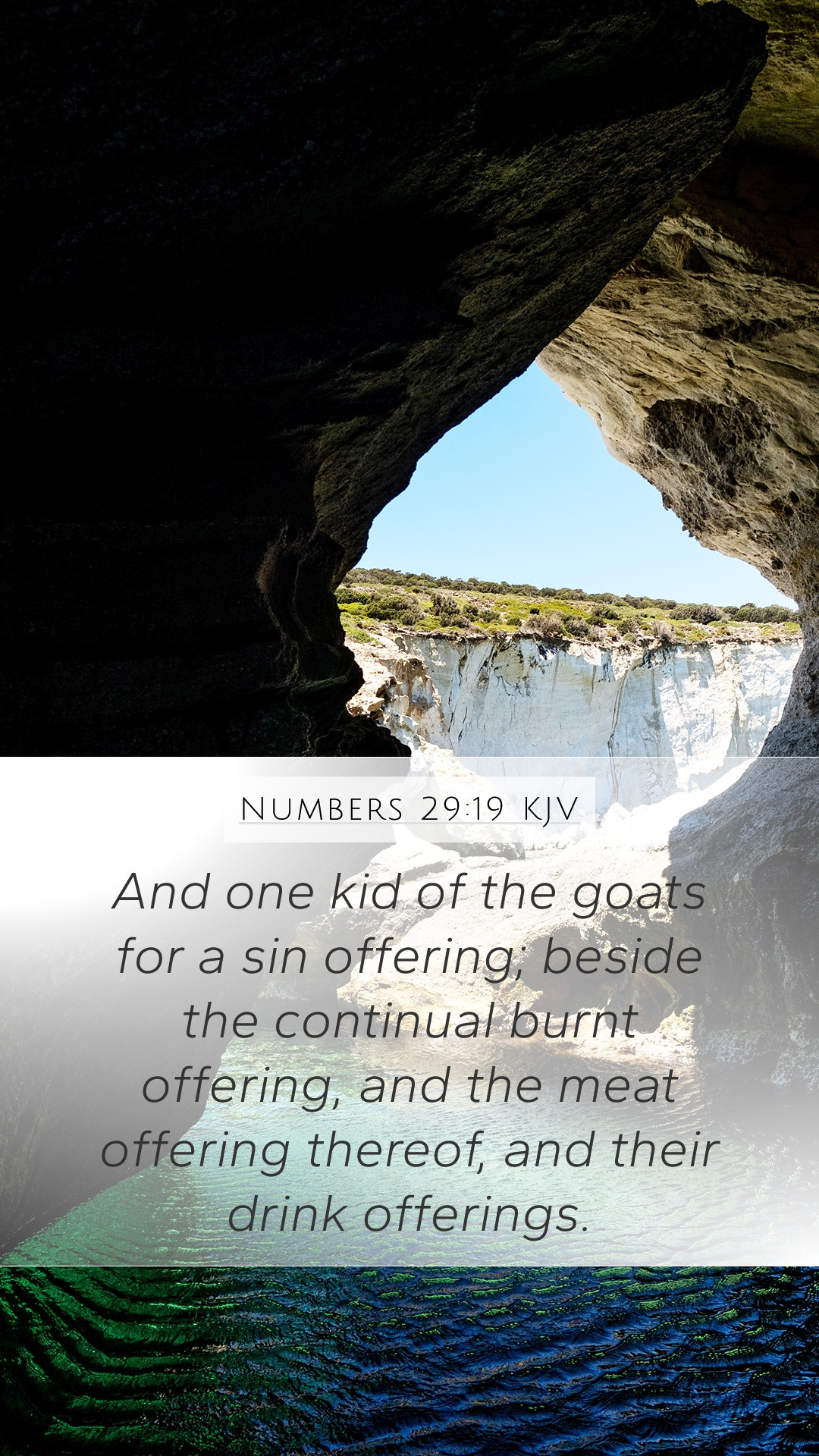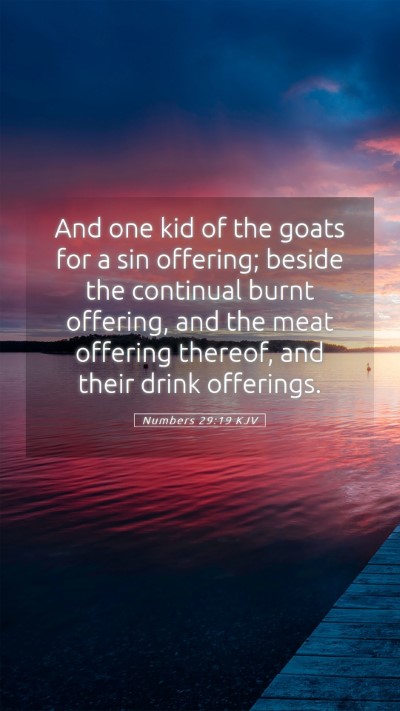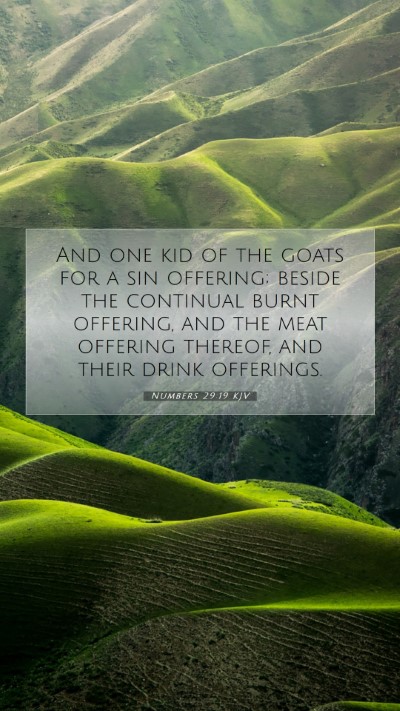Understanding Numbers 29:19
Numbers 29:19 states:
"And ye shall offer a burnt offering, a sacrifice made by fire, of a sweet savour unto the LORD; one young bullock, one ram, and seven lambs of the first year." (KJV)
Overview of the Verse
This verse is part of the instructions given by God to the Israelites regarding their sacrificial practices during the feast of Tabernacles. The offerings mentioned signify worship and dedication to Yahweh, highlighting the importance of approaching God with reverence and obedience.
Bible Verse Meaning
- Burnt Offerings: A key element in sacrificial worship, burnt offerings were essential in maintaining a relationship with God. They symbolized complete surrender and commitment, as the entire offering was consumed by fire.
- Sweet Savour: The term "sweet savour" indicates that these offerings were pleasing to God, which underscores the idea that God delights in the faithful obedience of His people.
- Specific Animals: The choice of a young bullock, ram, and lambs reflects the hierarchical nature of animal sacrifices and suggests a range of offerings to represent different aspects of the community’s penitence and praise.
Bible Verse Interpretations
Matthew Henry notes that this verse emphasizes the collective responsibility of the Israelite community in their worship practices, showing how communal efforts contribute to the national relationship with God. Each sacrifice had its significance and necessity within the sacrificial system established by God.
Albert Barnes provides further insight by explaining that the burnt offering epitomizes the idea of complete devotion. It acts as a type or precursor to the ultimate sacrifice of Christ, who offered Himself completely for humanity.
Adam Clarke highlights the meticulous details in offering different animals, emphasizing that these regulations not only reflect Israel's obedience but also serve as a foreshadowing of varied sacrifices fulfilling God's requirements throughout scriptural history.
Scripture Analysis
In a broader context, Numbers 29:19 can be analyzed as part of a larger sacrificial system that reflects God's holiness and Israel's need for atonement. This verse connects to various themes across scripture, including sin, redemption, sacrifice, and divine grace.
Biblical Exegesis
When performing biblical exegesis on Numbers 29:19, one can explore:
- The Historical Context: Understanding the historical setting of Israelite worship provides clarity on the importance and purpose of these sacrifices in ancient Israel.
- Symbolism: Each animal carries symbolic weight within the biblical narrative, inviting deeper reflection on their meaning in relation to Jesus Christ's sacrifice.
- Broader Themes: This verse invites discussions on themes such as worship, community, and the role of sacrifice in maintaining a relationship with God, prevalent throughout both the Old and New Testaments.
Bible Study Insights
For individuals or Bible study groups delving into this verse, the following insights can be helpful:
- Explore the significance of different offerings within Levitical law and how they relate to personal and communal worship.
- Discuss the implications of offering 'a sweet savour' in connection with New Testament perspectives on worship and devotion.
- Challenge participants to consider what it means to present themselves as living sacrifices in light of Romans 12:1.
Application of the Verse
The significance of Numbers 29:19 extends beyond ancient practices to modern applications:
- How can we offer ourselves fully to God in our daily lives?
- What does it mean to worship in a way that is pleasing to God today?
- In what ways can communal worship strengthen our relationship with God and one another?
Related Bible Cross References
- Leviticus 1:3-4 - Details the burnt offerings and their purpose.
- Romans 12:1 - Discusses presenting our bodies as living sacrifices.
- Hebrews 10:1-4 - Examines the insufficiency of the sacrificial system in contrast to Christ's ultimate sacrifice.
Conclusion
Numbers 29:19 serves as a vital piece in the intricate tapestry of biblical worship, reflecting God's desire for genuine devotion and the significance of community in worship. Through the profound principles of sacrifice, obedience, and worship, this verse beckons all to a deeper understanding of Scripture and its application in the life of believers today.


